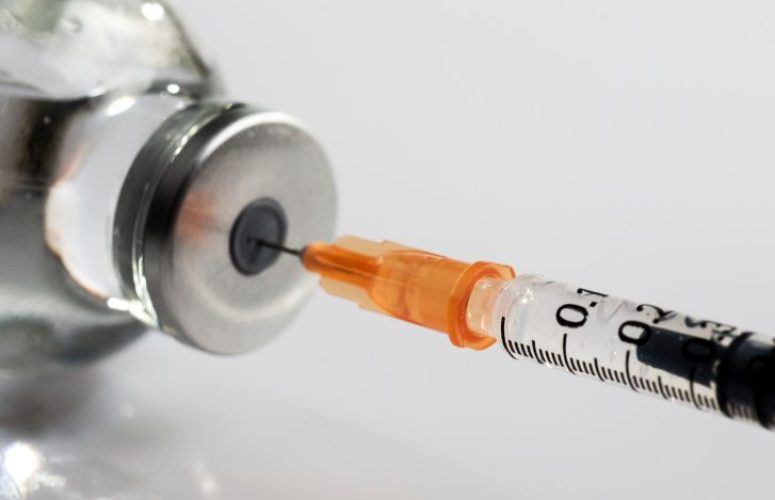
J&J COVID-19 Booster Recommended for EUA by FDA Advisory Committee
On Oct 18, 2021New Brunswick-based Johnson & Johnson announced the U.S. Food and Drug Administration’s (FDA) Vaccines and Related Biological Products Advisory Committee (VRBPAC) unanimously voted 19-0 to recommend Emergency Use Authorization (EUA) for a booster dose of the Johnson & Johnson COVID-19 vaccine for adults aged 18 and older at least two months following initial vaccination with the single-shot vaccine.
The vote was based on findings from two company clinical trials, including the Phase 3 ENSEMBLE 2 study, which evaluated a booster dose of the Johnson & Johnson COVID-19 vaccine administered two months after the single-shot, as well as a large and robust real-world evidence study. The Company also presented data that support the increased potential of a booster when administered at six months. Phase 3 clinical data and real-world data both demonstrated the Johnson & Johnson single-shot COVID-19 vaccine was strong and long-lasting.
“Today’s recommendation is based on the totality of evidence, with clinical and real-world data showing that while a single shot offers strong and long-lasting protection against COVID-19, a booster given after the single-dose primary vaccination increases protection, in particular against symptomatic COVID-19,” said Paul Stoffels, M.D., vice chairman of the executive committee and chief scientific officer, Johnson & Johnson.
“Johnson & Johnson is steadfast in its commitment to protect as many people globally as possible against the continued spread of COVID-19,” said Mathai Mammen, M.D., Ph.D., global head, Janssen Research & Development, Johnson & Johnson. “Today’s recommendation by the VRBPAC is another step toward ensuring that those who have received the single-shot Johnson & Johnson vaccine – or will receive it in the future – are provided the opportunity to increase their protection against COVID-19. We look forward to sharing these data with regulatory bodies and advisory groups around the world to address the continued threat of COVID-19.”
The company’s EUA amendment submission included results from the Phase 3 ENSEMBLE 2 study, which found a booster dose at two months provided 94 percent protection against symptomatic (moderate to severe/critical) COVID-19 in the United States (CI, 58%-100%) and 100% protection (CI, 33%-100%) against severe/critical COVID-19, at least 14 days post-booster vaccination. Also submitted were findings from a Phase 1/2a study evaluating a booster dose given six months after the first shot, which show antibody levels increased nine-fold one week after the booster, and continued to climb to 12-fold higher four weeks after the booster.
The vaccine, when given as a booster or primary dose, was generally well-tolerated, with no new safety signals observed in the two-dose ENSEMBLE 2 trial compared with single-dose studies.
The submission also included data from a large and robust U.S. real-world evidence study, conducted from March to July 31, 2021, and recently extended to Aug. 31, 2021. These real-world data demonstrated the single-dose Johnson & Johnson COVID-19 vaccine showed stable vaccine effectiveness of 76 percent (CI, 75%-77%) for COVID-19-related infections and 81% (CI, 79%-84%) for COVID-19-related hospitalizations, with no evidence of reduced effectiveness over the study duration of six months – including when the Delta variant became dominant in the U.S. (sequencing data were not available for analysis).
Johnson & Johnson remains committed to helping end this pandemic as quickly as possible and is committed to diligently generating and evaluating real-world evidence, as well as evidence from its ongoing clinical trial program.
The company anticipates a decision from the FDA on the EUA amendment for a booster dose of the Johnson & Johnson COVID-19 vaccine in the coming days, and plans to submit relevant data to other regulators, the World Health Organization (WHO) and National Immunization Technical Advisory Groups (NITAGs) worldwide to inform decision-making on local vaccine administration strategies, as needed. The Centers for Disease Control and Prevention’s (CDC) Advisory Committee on Immunization Practices (ACIP) will discuss the use of boosters and provide a potential recommendation on October 21.
In the U.S., there is sufficient supply to support boosting to those who have received the more than 15.1 million doses of the Johnson & Johnson COVID-19 vaccine that have been administered as primary vaccinations.
The Johnson & Johnson single-shot COVID-19 vaccine, developed by its Janssen Pharmaceutical Companies of Johnson & Johnson, received initial EUA in the United States on Feb. 27, 2021 and Conditional Marketing Authorization (CMA) by the European Commission on March 11. The World Health Organization (WHO) issued Emergency Use Listing on March 12, and the company received an interim recommendation by the Strategic Advisory Group of Experts (SAGE) on Immunization for the WHO on March 17. Many more authorizations have been granted in countries worldwide, and regulatory submissions are ongoing.
To access more business news, visit NJB News Now.
Related Articles:





